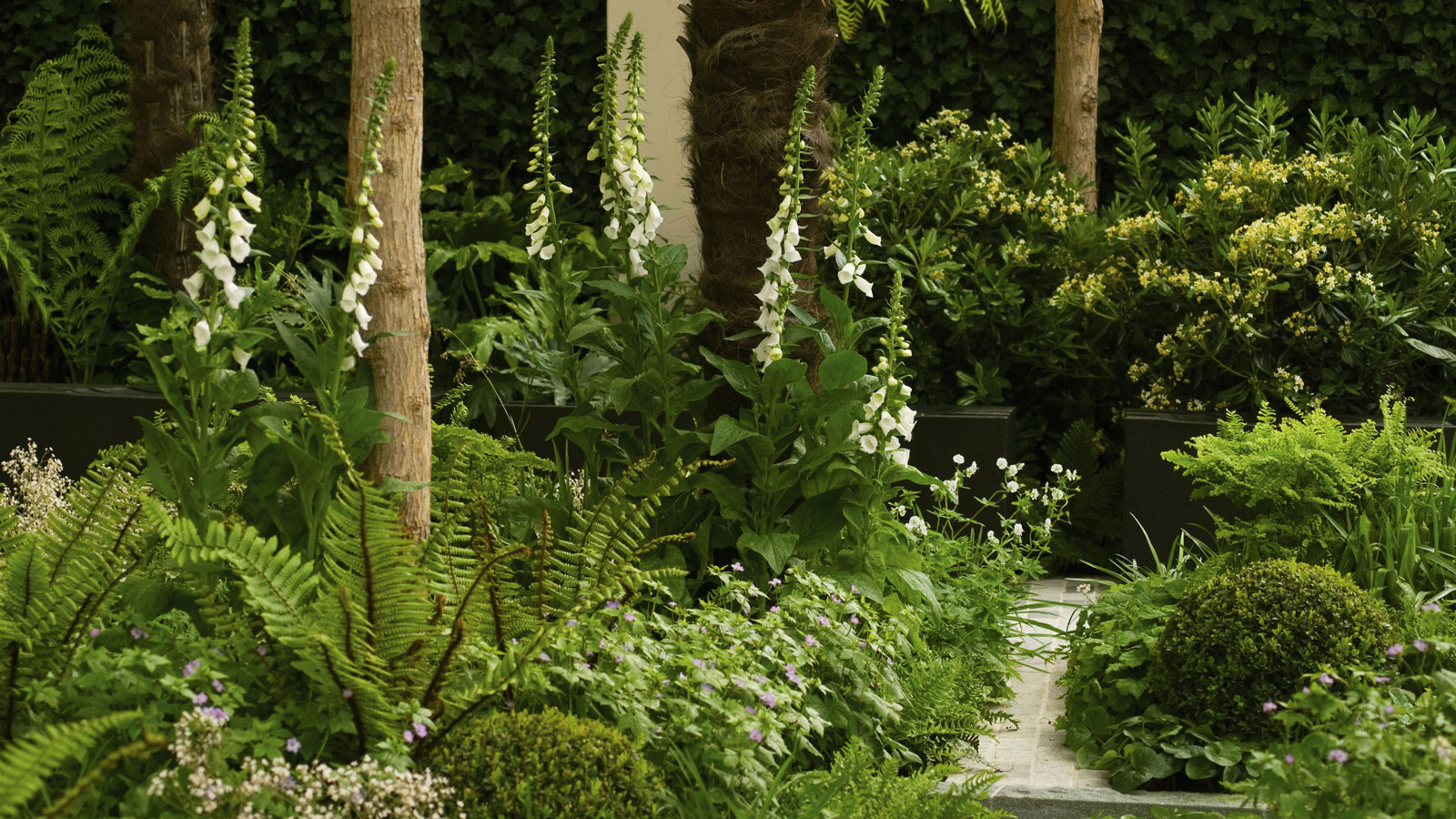
Shade-loving perennials are the perfect solution for brightening dark corners in city yards dwarfed by tall buildings. These leafy flowering plants thrive in low-light conditions, offering texture, color, and blooms to transform shady areas and create a lovely way for you to reconnect with nature and get the most out of your space.
The urban environment is made for shade gardens, with plants thriving in overlooked spaces despite the gloom. The walls of buildings create the sheltered conditions of a microclimate that cossets plants and sees perennials return year after year with minimal input from you. When filled with flowers and foliage a dark corner switches up into an inviting space rather than a forgotten area.
From the feathery plumes of astilbe and the luminous blooms of white Japanese anemones to the bold ribbed leaves of hostas and the shapely foliage of ferns, perennial shade plants add an elegant accent as part of your shady garden ideas. Now find out more with our expert suggestions for easy plants that will enhance the shaded spots in your garden.
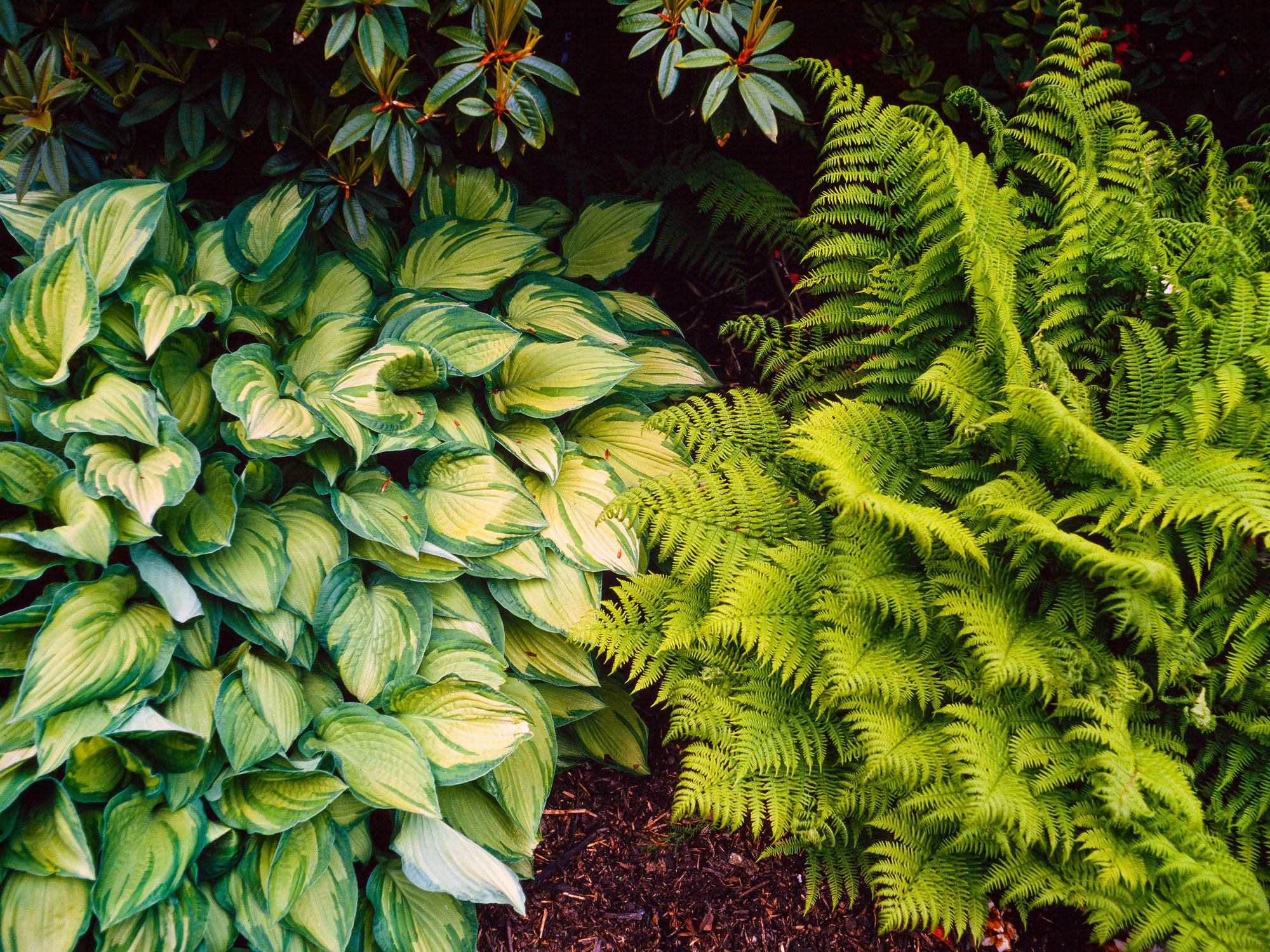
What perennial plants should I plant in a shady garden?
'Almost everyone has areas of shade in their outside space,' says planting design specialist and shade garden expert Susanna Grant, author of Shade. 'It might come from a neighbouring tree, a nearby building, tall or dense shrubs, an overhanging balcony, or a side return. Generally, we see this as a ‘problem area’, but it doesn’t have to be that way.'
Instead Susanna points out all the positives about shady gardens. They need watering less frequently, the plants provide shelter for pollinators, and the planted areas look better for longer in the season as they don't get fried in the sun.
Getting the right plant for the right place is important if your yard is filled with shade. The good news is there are plenty of perennial shade plants to choose from to set your flower bed ideas apart from the crowd. Here are some easy choices that will reward you time and again.
1. Japanese anemone ‘Honorine Jobert’
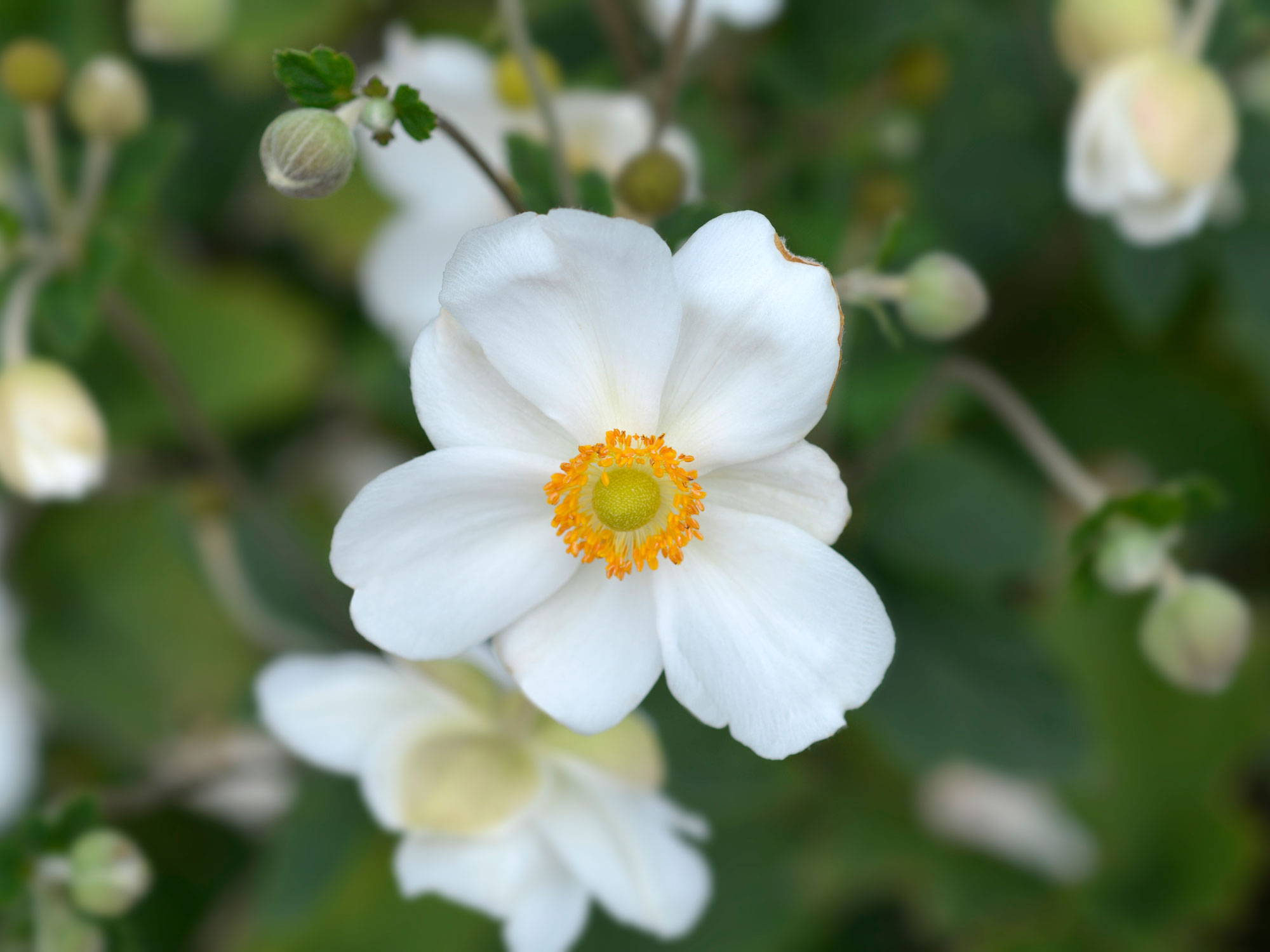
The elegant flowers of ‘Honorine Jobert’ are a perennial favorite to extend the flowering season and are a must-have for every late summer/fall shade garden. This cultivar is really happy in part shade, and its pristine white flowers on tall stems are a great choice to lighten up shady corners. Japanese anemones attract bees and are among the best plants to attract butterflies too, as well as being good as cut flowers in tall and airy indoor arrangements.
'Japanese anemones are a welcome addition to the late-summer garden,' says horticulturalist Jenny Rose Carey, author of The Ultimate Flower Gardener's Guide. 'Their long stems hold bowl-like blooms above lower-growing good quality foliage. The form of the plant and the flower make a lovely fresh contrast to other plants of the season, and they have a lovely see-through quality.'
This cool classic spreads easily via runners but not in an overly intrusive way. Instead they pop up in borders where you least expect them, in the most welcome way, to brighten a dark corner or shady flower bed.
Hardiness zones: 4-7
2. Euphorbia 'Mrs Robb's Bonnet'
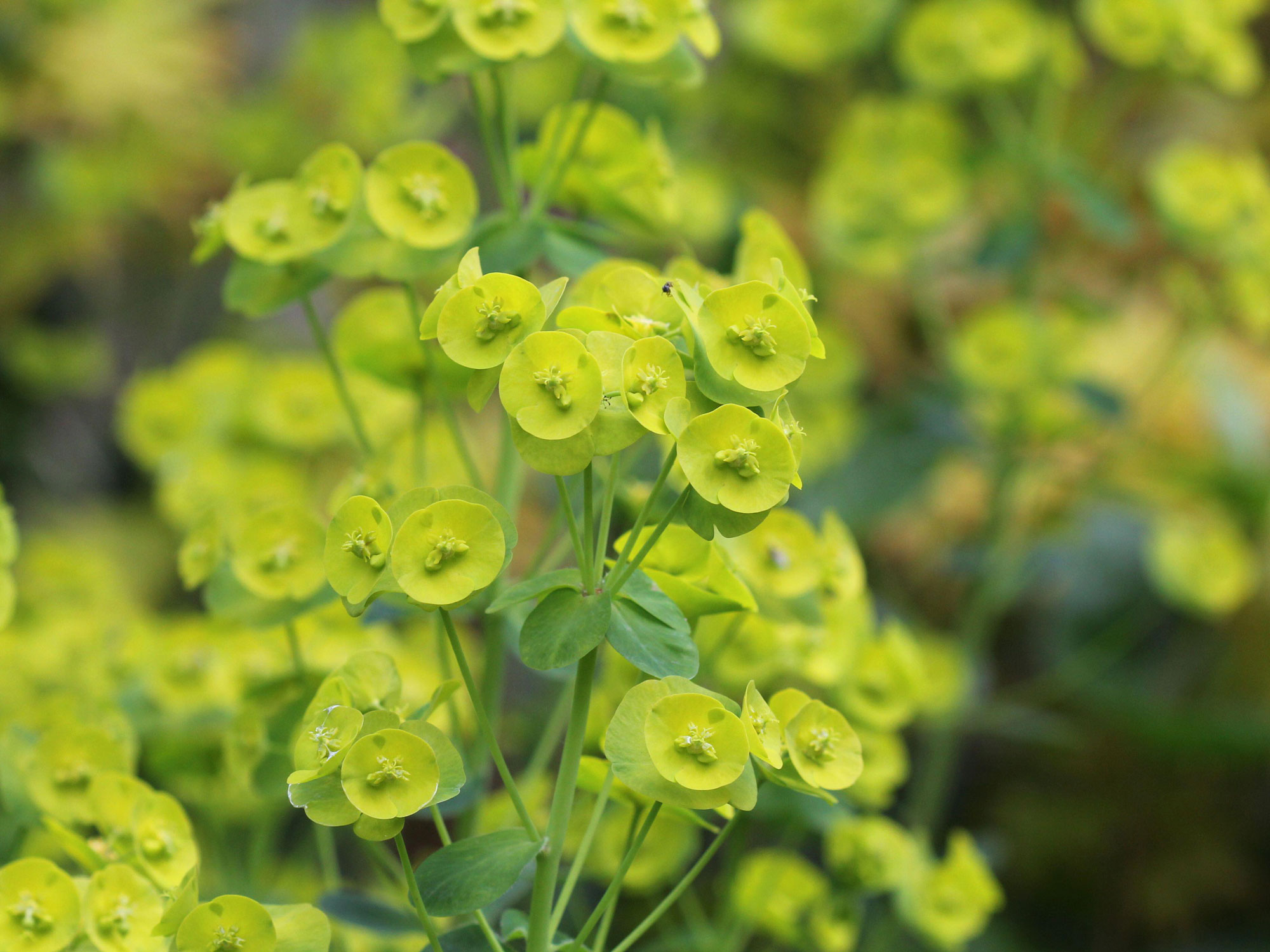
There are so many reasons to love this plant, including the homespun name. This variety of Euphorbia is invaluable for adding pizazz to a shady spot. It will brighten up a dark corner with its zingy acid-green flowers that bloom for months from spring right through summer.
It's another cut flower garden favorite too and will add a special something to flower displays indoors. Just don't come into contact with the milky sap as it causes skin irritation, so be sure to wear gloves for snipping stems.
This plant spreads by underground runners and is a great choice if you want to fill out the space under and around a tree where little else will grow. It isn't phased by poor soil either.
Hardiness zones: 6-9
3. Astilbe 'Maggie Daley'
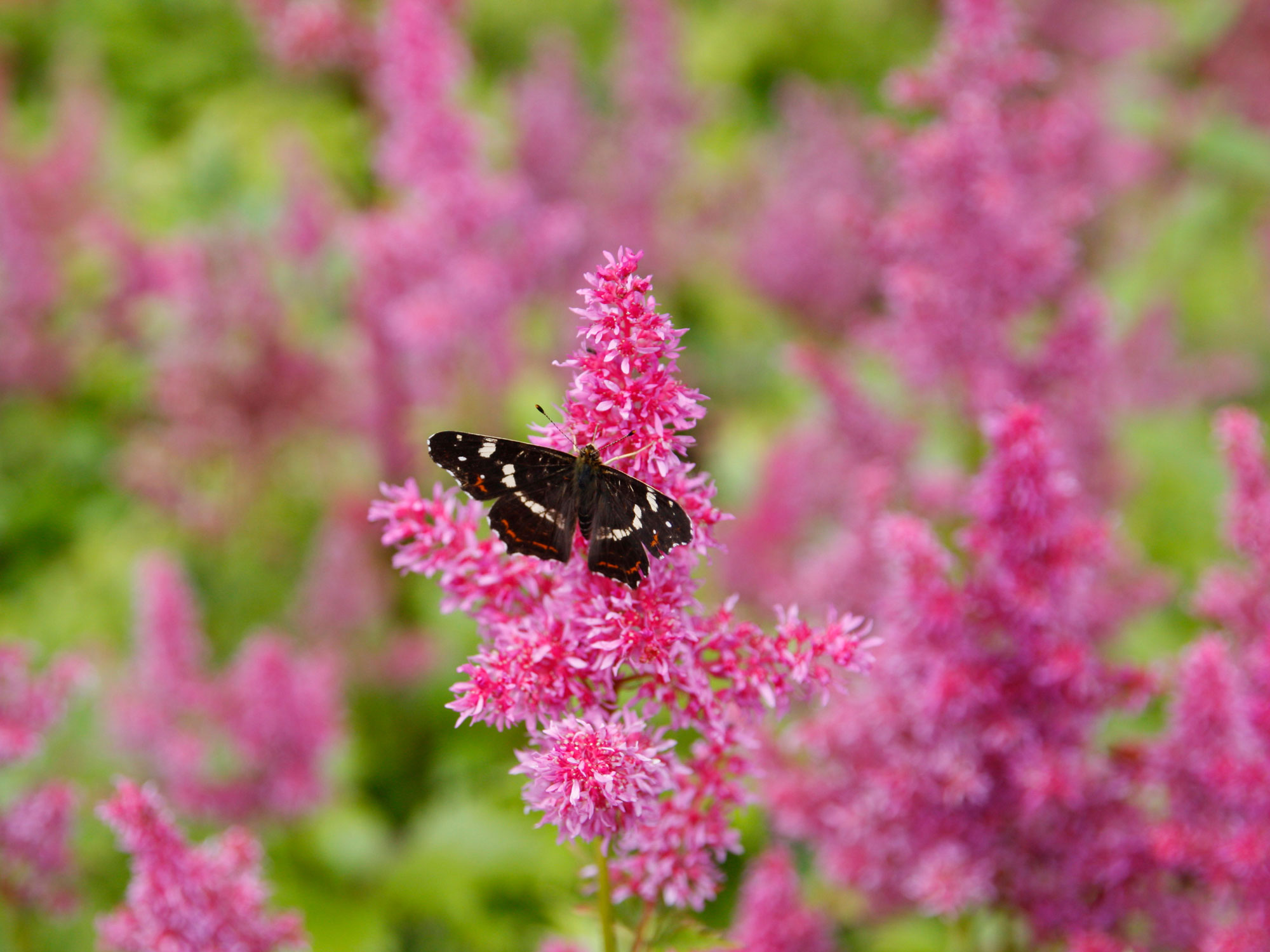
There are plenty of cultivars of Astilbe that thrive in full shade, and they come in a range of lovely soft pastel colors such as pink, peach, mauve and cream. The 'Maggie Daley' cultivar handles both partial shade and dappled shade well, so is a versatile addition to shady gardens.
'Featuring a profusion of showy spikes of mauvy-pink panicles in mid to late summer, the drop-dead gorgeous Astilbe 'Maggie Daley' is an excellent perennial for lightly shaded areas,' according to the experts at Nature Hills online plant nursery. 'This late-summer blooming Astilbe has closely packed flowers to create spires standing tall above shiny, bronze-green, ferny foliage.'
'Maggie Daley' blooms later than other Astilbes, much to the delight of the bees and butterflies, as well as being good flowers for hummingbirds looking to extend their nectar-foraging season. These herbaceous perennials top out at about 2 feet or more when in bloom, and their fountain-like greenery can spread to around 16-20 inches wide.
Hardiness zones: 4-9
4. Geranium phaeum 'Album'
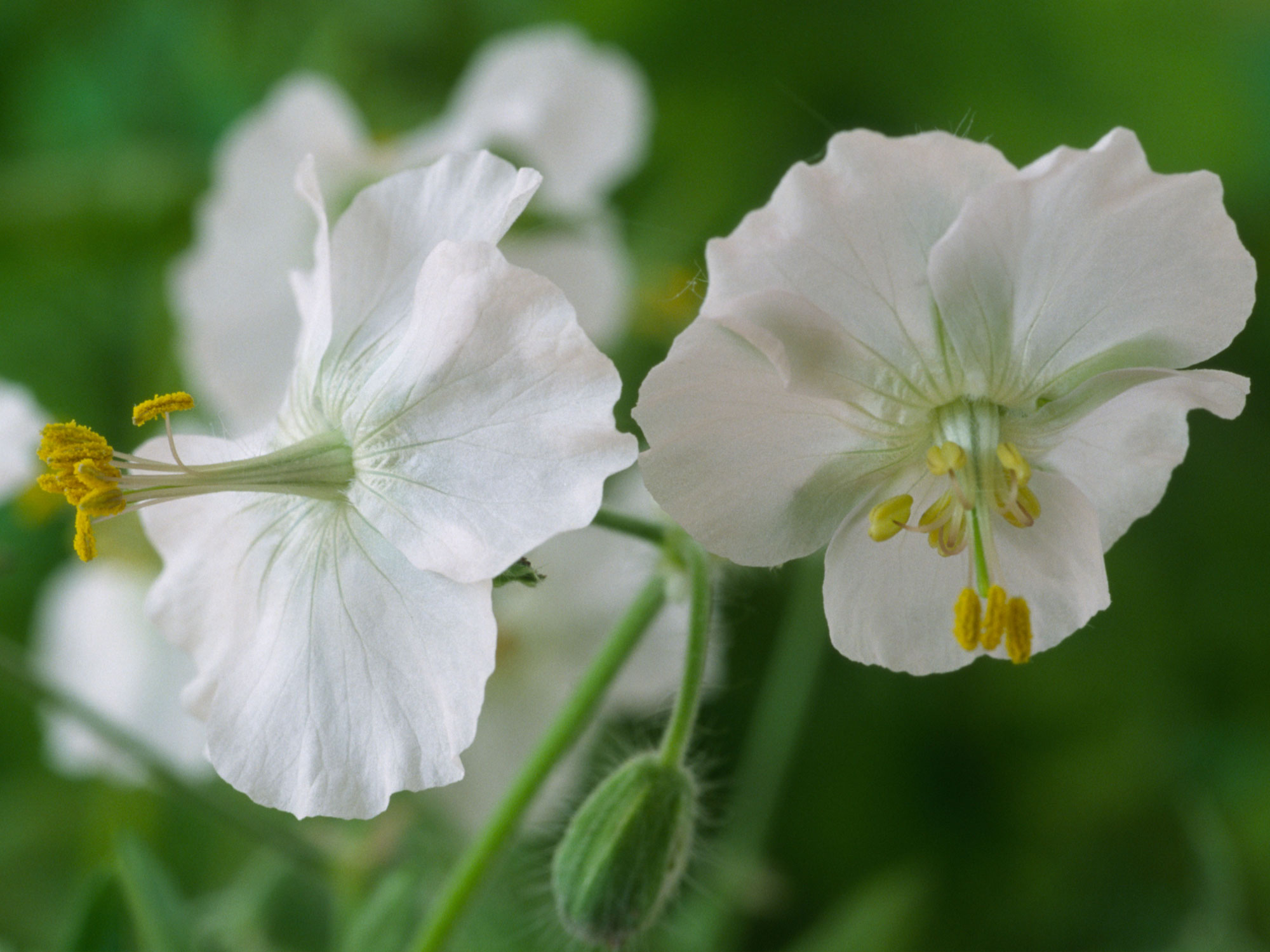
Also known as white cranesbill this pretty shade-loving perennial plant produces pure white blooms in late spring and early summer, with beautiful green foliage that lasts right into fall. If you cut this plant back once it's finished flowering you should get a second flush of blooms.
Geranium phaeum 'Album' will grow up to 18 inches tall, spreading and sprawling to around 1-2 feet wide to add an airy lightness to the flower bed. It even thrives in poor soil. Loved by pollinators, it's also a good choice as a flower for pots in shade near your outdoor seating area so you can take advantage of the show by getting up close.
White cranesbill looks particularly eye-catching planted against a background of dark ferns as this will allow the flowers to really shine.
Hardiness zones: 5-9
5. Solomon’s seal
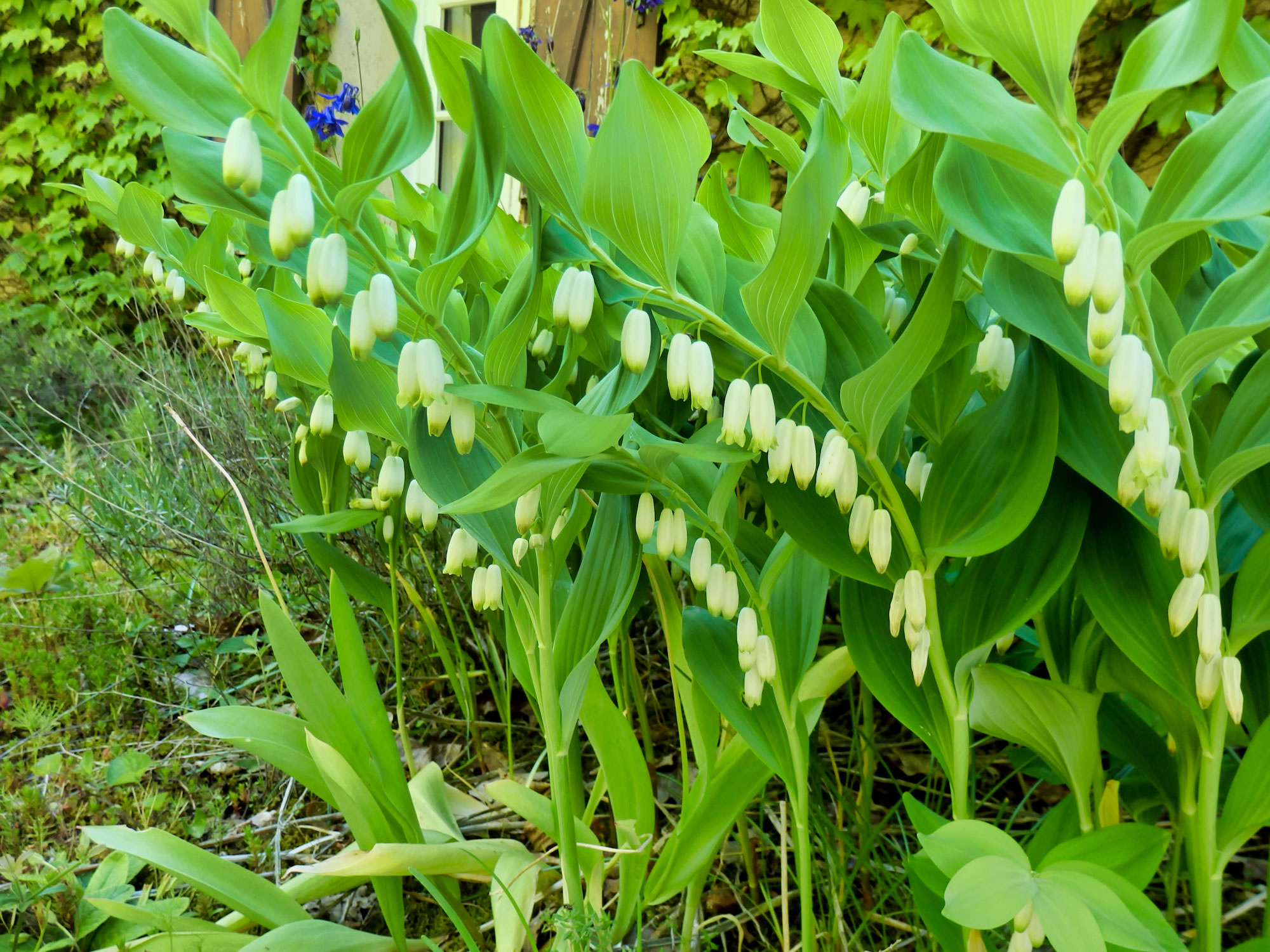
These spreading beauties colonize tough shady spots in the garden, adding shapely arching leaves and creamy, bell-shaped flowers to your design. Also known as Polygonatum, they are drought-tolerant plants and conversely don't mind damp conditions either. But they will need full shade during hot summers if you live in Zones 3-8.
If you have a tricky shade spot Solomon's seal is a must-have. It will add a lush note of beauty to your yard, plus it's another one of those perennial shade plants that are great for cutting and adding to vases.
This perennial is good for propagating too. Cut it back in fall, then lift and divide plants in early spring, taking care not to damage the young shoots.
Hardiness zones: 3-9
6. Perennial foxglove
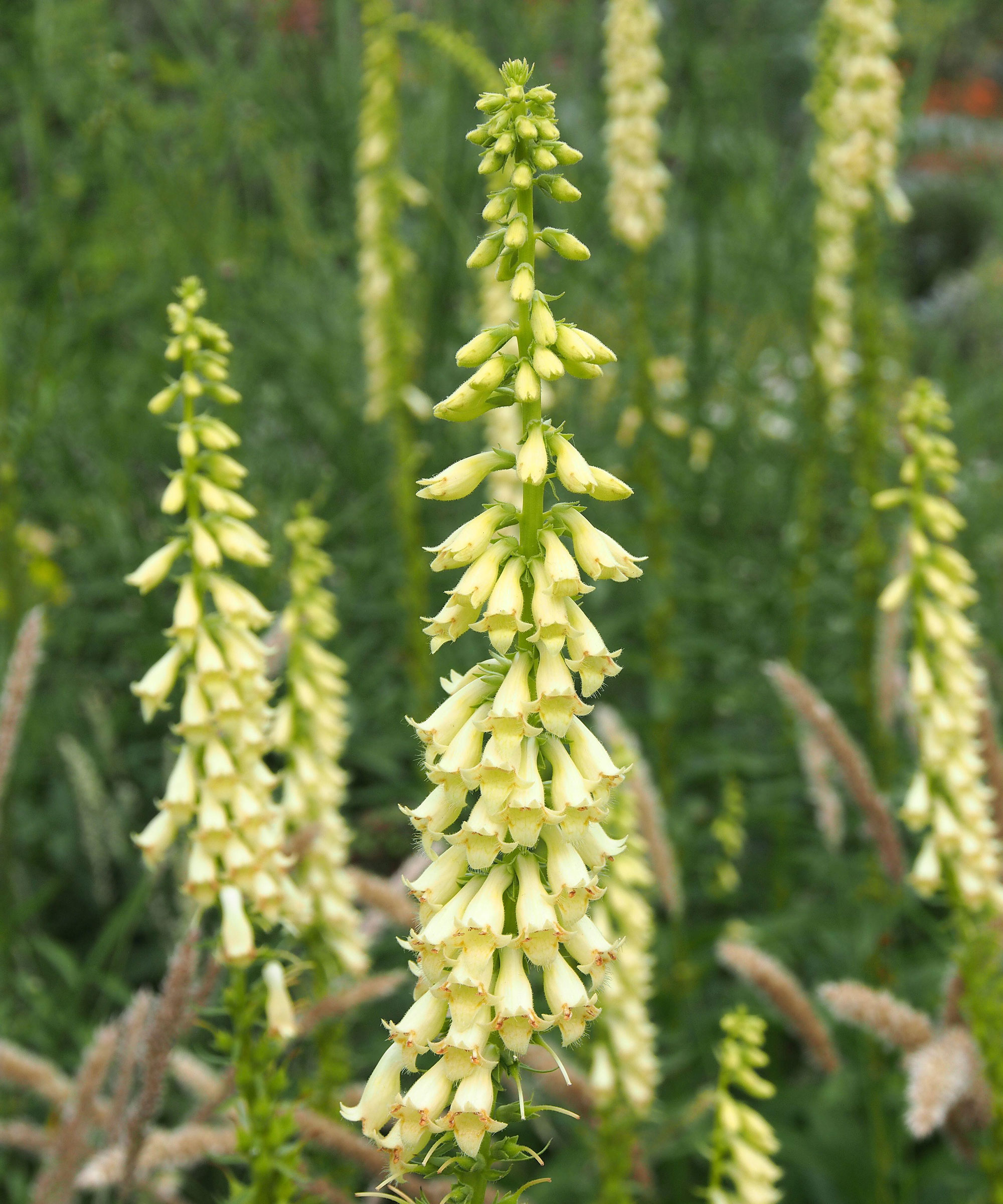
Another reliable choice for shady gardens, bold spikes of foxgloves create dramatic punctuation marks in dark corners. If the space suits them they will flower and set seed prolifically.
'There are perennial foxgloves and biennial ones, so read the label before you buy,' says Jenny Rose Carey. 'Digitalis grandiflora is a perennial species with large, soft yellow flowers. Digitalis lutea, also known as straw foxglove, is a perennial with stacks of small, pale yellow flowers packed along its slender stems.'
The delicate bell shaped ivory-pale lemon flowers of Digitalis lutea look good partnered with Solomon's seal in a shaded or partly shaded bed. This wildlife gardening friendly flower is evergreen too, as well as suitable for cutting.
Hardiness zones: 4-9
7. Bleeding heart 'Alba'
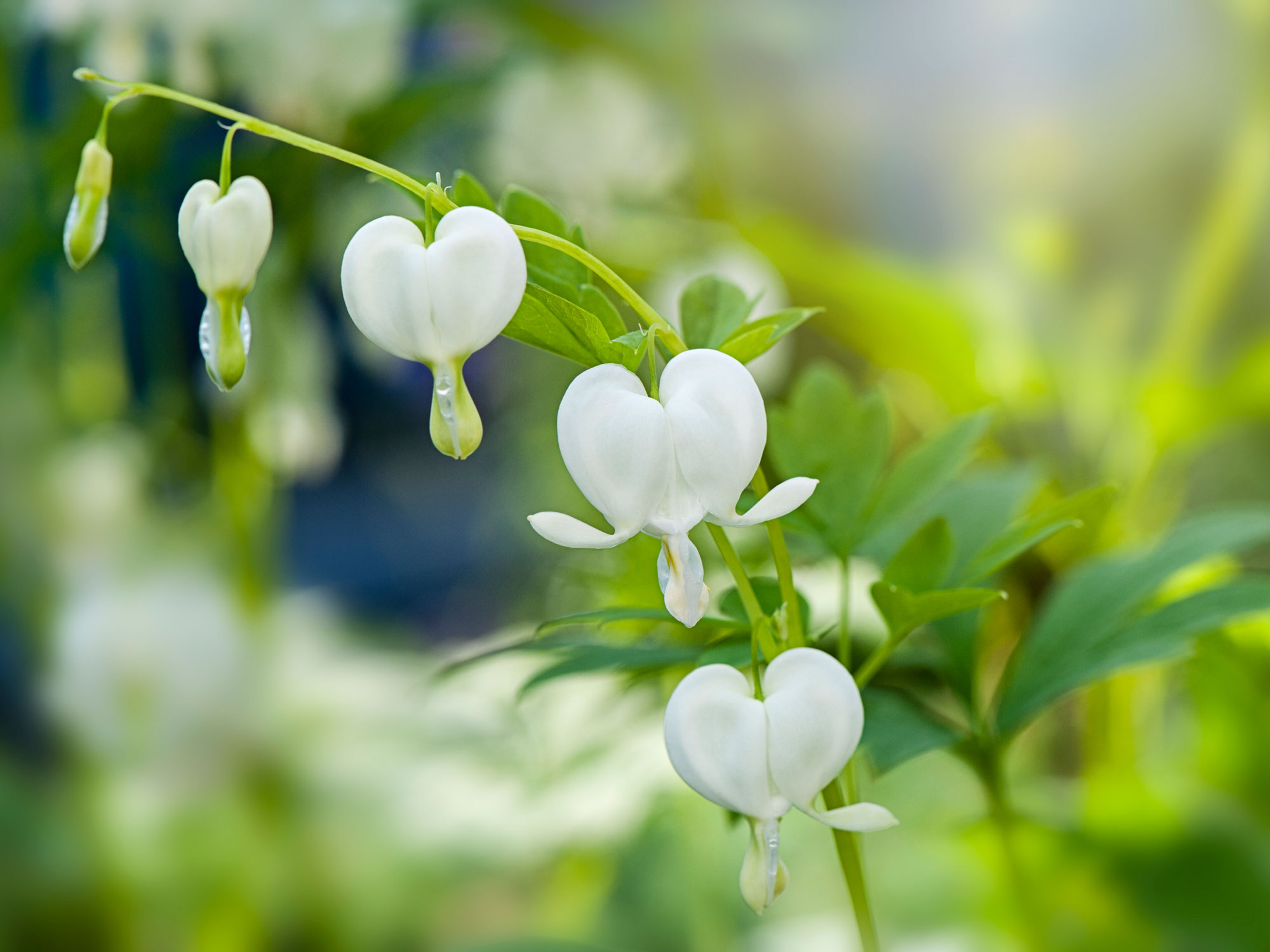
Bleeding heart is one of the all-time favorite perennial shade plants, thriving in full and partial shade conditions. The finely-cut foliage looks almost fernlike, and in late spring and early summer, it produces heart-shaped flowers from elegant, arching stems. They are usually pink but the cultivar 'Alba' has pure white flowers to add luminosity to an area of perennial shade plants.
'Finding beautiful plants for shade, especially in spring, can be tough,' says Ryan McEnaney, a plantsman, designer and communicator for all things green and gardening. 'But bleeding hearts are a solid choice for that exact scenario. The blooms draping off long stems give such brightness and beauty as your shade garden starts to wake up.' Ryan's new book Field Guide to Outside Style: Design & Plant Your Perfect Outdoor Space has plenty of lovely ideas to help choose the right plants.
Bleeding hearts will thrive in city and courtyard gardens, especially in semi-shaded borders, where they will attract butterflies, bees and hummingbirds.
Hardiness zones: 3-9
8. Lily turf
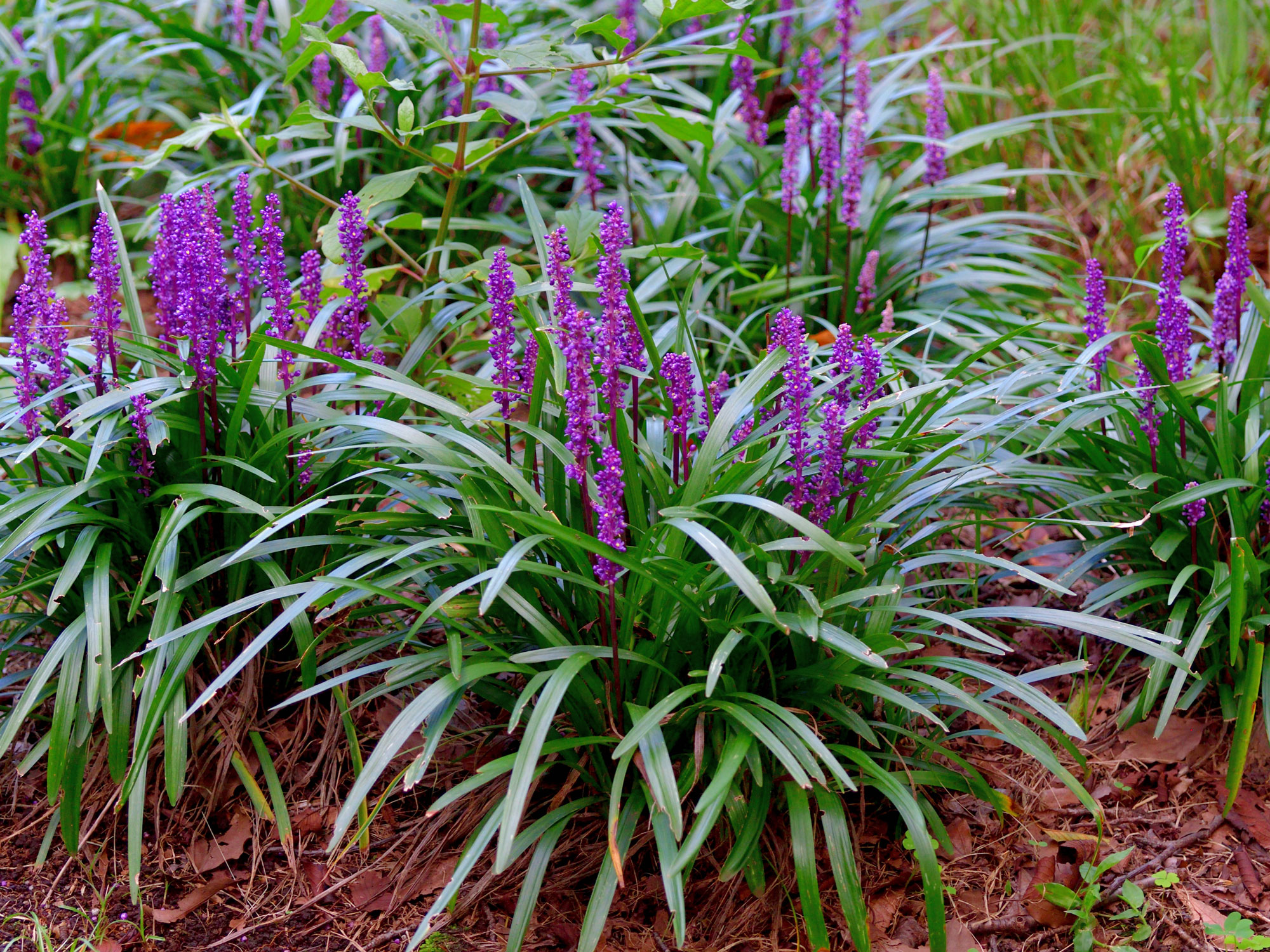
'Fantastic in linear rows and impressive en masse, lily turf (Liriope muscari) are clump-forming perennials that are especially impressive in late summer when the purple blooms rise above the arching leaves like spikes,' says Ryan McEnaney. 'Only growing up to 2 feet, these low-growing perennials are beautiful when planted in a group, especially as an understory to trees.'
Loved for its grassy foliage this is an easy perennial variety you can plant and forget about, especially if you find a spot for it in dry shade. It will even thrive in full shade.
It's worth pointing out that it can settle in a little too well and start to spread, so choose a spot that's contained like a raised bed or container to keep its growth in check unless you want your yard to be lily turf central.
Hardiness zones: 5-10
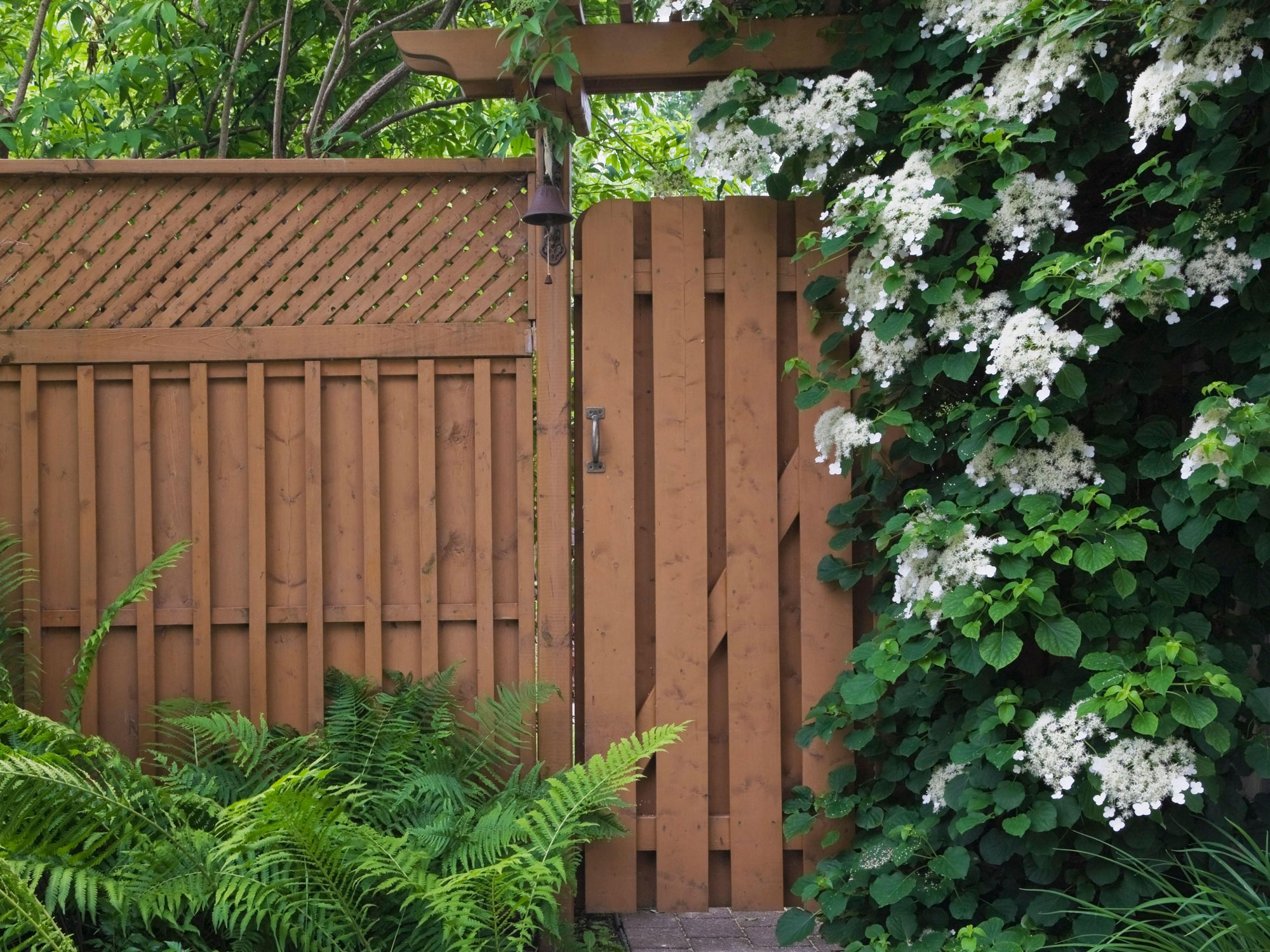
If you love the idea of making the most of your shady garden and want to discover more ideas to tie in with perennial shade plants, check out the best bulbs for shade and the best flowers for pots in shade, as well as low-maintenance ground covers for shade. Plus of course you'll want to know about the best climbing plants for shade to deal with those north-facing walls and fences.







